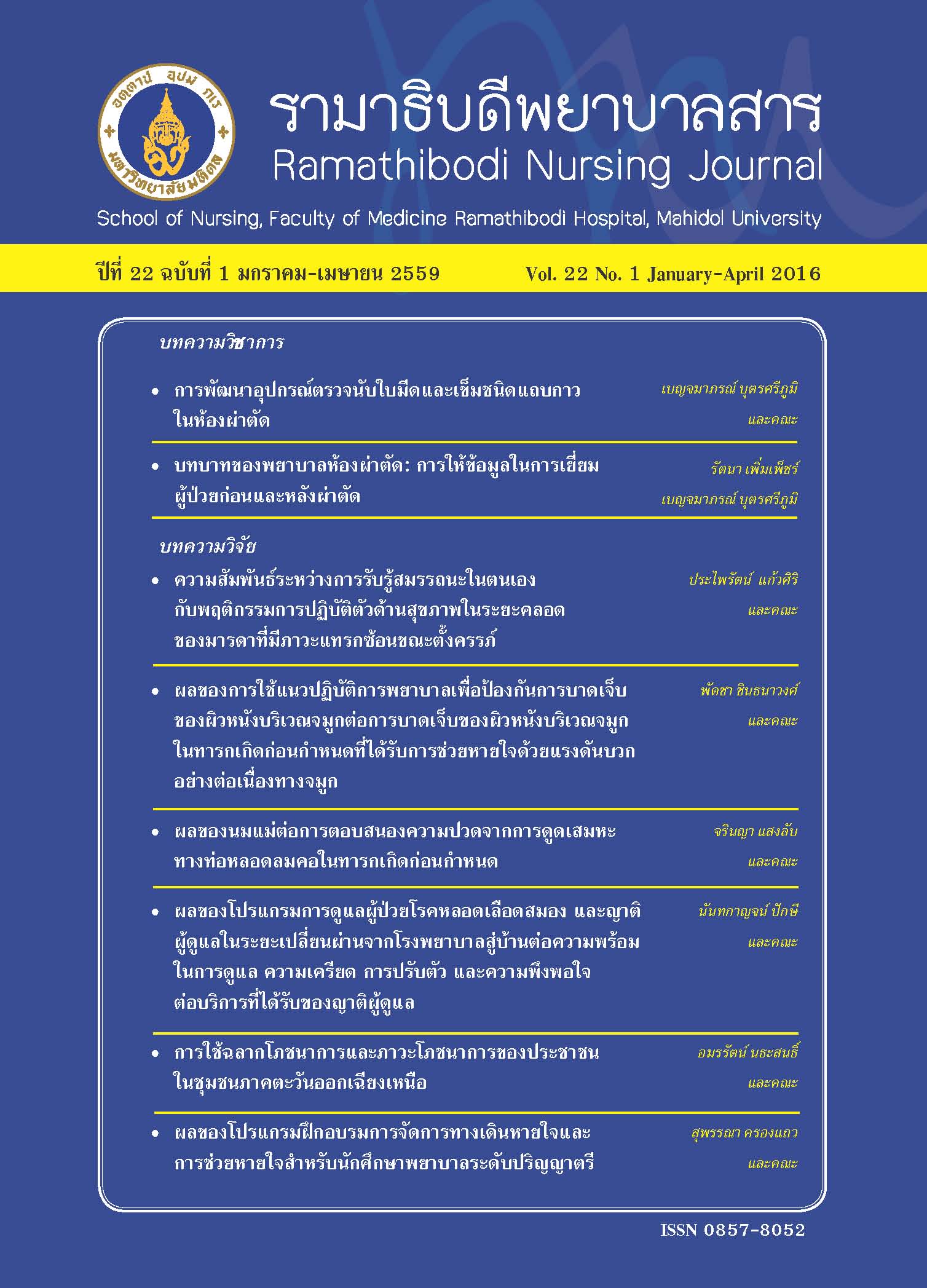The Relationships between Perceived Self-Efficacy and Health Behaviors during Childbirth among Mothers with Complications during Pregnancy
Main Article Content
Abstract
Abstract: This descriptive research aimed to examine the relationships between perceived self-efficacy and health behaviors during childbirth among mothers with complications during pregnancy using the concept of Bandura’s perceived self-efficacy theory. The purposive samples consisted of 162 postpart women who had been diagnosed with compications during their pregnancy. They received post-delivery care at the Obstetrics-Gynecology ward of Nakhon Phanom Hospital. The questionnaires consisted of three parts as follow; 1) demographic data, 2) perceived self-efficacy of mothers with complications duringpregnancy, and 3) health behaviors during childbirth period among mothers with complications during pregnancy. The data were analyzed using descriptive statistics and Pearson's product-moment correlation coefficient. It was found that the mean scores of perceived self-efficacy and the health behaviors of mothers with complications during pregnancy were at a high level. The overall score of perceived self-efficacy was positively related to health behaviors during chlidbirth among mothers with complications during pregnancy with statistical signifecance. The finding suggests that nurses and health care team should assess the perceived self-efficacy of mothers who deliver in both normal labors and high risk labors in order to appropriately respond to the physical and psychosocial needs of the mothers.
Keywords: Perceived self-efficacy, Health behaviors during childbirth, Mothers with complications during pregnancy
Article Details
บทความ ข้อมูล เนื้อหา รูปภาพ ฯลฯ ที่ได้รับการตีพิมพ์ในรามาธิบดีพยาบาลสาร ถือเป็นลิขสิทธิ์ของวารสาร หากบุคคลหรือหน่วยงานใดต้องการนำทั้งหมดหรือส่วนหนึ่งส่วนใดไปเผยแพร่หรือเพื่อกระทำการใด ใด จะต้องได้รับอนุญาตเป็นลายลักษณ์อักษรจากรามาธิบดีพยาบาลสารก่อนเท่านั้น


